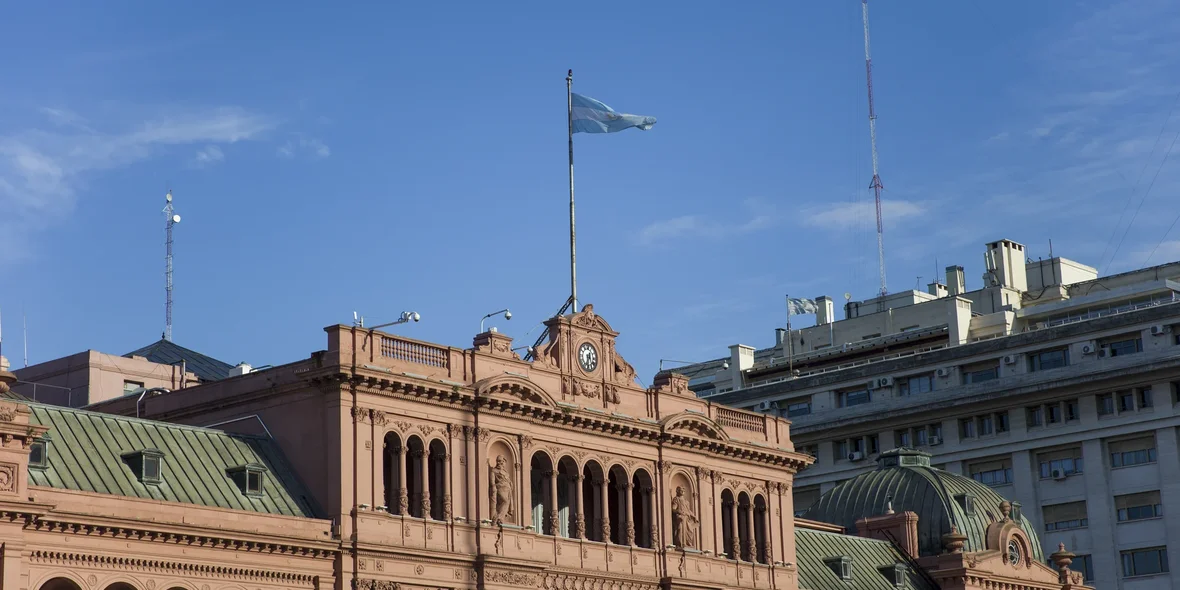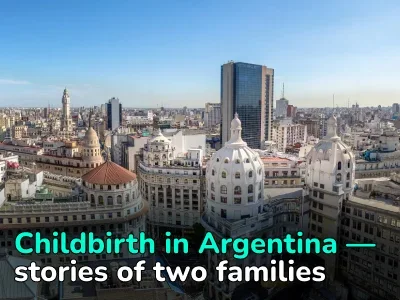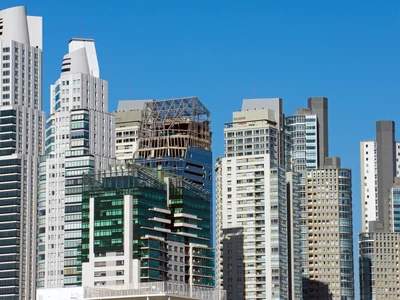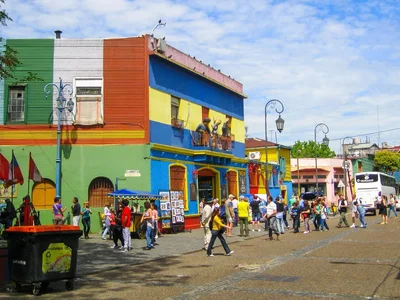
How to Get a Rentista Visa in Argentina and Citizenship in 2 Years
Latin American countries are not significantly behind Western nations in terms of development, while offering a lower cost of living. These characteristics make the region attractive for individuals with high passive income who are seeking an affordable yet comfortable lifestyle. In Argentina, there is a special visa designed for such individuals — the Rentista Visa. It allows you to obtain residency and, after two years, to apply for citizenship.
In this article, we explain what the Rentista Visa is, what requirements must be met to obtain it, and how the application process works.
Rentista Visa in Argentina
The term “rentista” refers to a person who lives off passive income not related to active employment. In Argentina, the Rentista Visa is a residency permit intended for foreigners who can financially support themselves through stable passive income received from outside the country.
To qualify, applicants must have income from sources such as rental properties, stock dividends, bank interest, income from investment funds, or other steady sources not tied to employment in Argentina.
The visa is suitable for property owners receiving rental income, investors with a portfolio of securities, and even retirees receiving a pension from their home country. The key requirement is that the income must be regular, legally documented, and verifiable. Digital nomads and freelancers are not eligible, as their income is considered active rather than passive.
Advantages and Limitations of the Rentista Visa in Argentina
While the Rentista Visa in Argentina offers numerous benefits, it also comes with certain drawbacks, many of which are linked to local legal specifics concerning temporary residents. Let’s begin with the advantages:
- Accessible financial threshold. The visa can be obtained with a verifiable passive income equivalent to five minimum wages in Argentina — approximately $1390 to 2000 per month per person. This threshold is lower than the €3000—4000 monthly income required under similar programs in countries like Greece or Portugal.
- Pathway to citizenship. After two years of legal residence under temporary resident status, one becomes eligible to apply for Argentine citizenship without having to renounce their current passport.
- Flexible stay requirements. Continuous residence in Argentina is not mandatory to maintain Rentista status — it is sufficient to stay in the country for at least six months per year.
- Access to education. Temporary residents are entitled to free public education. However, under Decree DNU 366/2025, national universities may charge tuition fees to temporary residents based on internal regulations.
Drawbacks:
- Employment restrictions. The Rentista Visa does not grant the right to work for Argentine employers. Engaging in unauthorized employment may result in visa revocation.
- Difficulties with fund transfers. The immigration authority requires that income be transferred through formal banking channels such as SWIFT or reputable remittance services like Western Union.
- High inflation. The minimum income requirement is indexed to Argentina’s national minimum wage, which is subject to frequent changes due to high inflation rates in the country.
- Proof of lawful income. Immigration authorities closely scrutinize the origin of passive income and demand documentation confirming its legality and proof of tax compliance in the country of origin.
- Limited access to public healthcare. Temporary residents, including Rentista visa holders, are required to have health insurance upon entry into Argentina. Without insurance, access to public healthcare is limited to emergency services (e.g., urgent care or ambulance). For non-emergency services — such as routine consultations, diagnostics, or surgeries — either insurance coverage or upfront payment is required.
To obtain a Rentista Visa in Argentina, applicants must meet a number of requirements, the most important of which is income. The applicant must demonstrate a stable passive income equivalent to at least five minimum wages in Argentina — currently between $1390 and 2000 per month. Due to exchange rate fluctuations, immigration lawyers generally recommend targeting a monthly income of $2000.
Only passive income from outside Argentina qualifies. Acceptable sources include:
- Rental income from real estate abroad (e.g. residential or commercial properties).
- Dividends from stocks or other investments.
- Interest from bank deposits.
- Foreign pensions or royalties.
- Income from mutual funds or other financial instruments.
The income must be legal, taxed in the country of origin, and transferred into Argentina via official channels only (e.g., SWIFT or Western Union). Cash, cryptocurrencies, or informal transfers are not accepted.
Applicants must provide documentation proving the origin and consistency of the income over the last 6 to 12 months (depending on Dirección Nacional de Migraciones (DNM) requirements).
Required documents for a rentista visa application:
- Valid passport. Original and copies of all pages. The passport must be valid for the entire duration of the visa (1 year for the initial visa).
- Police clearance certificate. From Argentina and from all countries where the applicant has resided for more than one year during the past three years. The document must be no older than 6 months, translated into Spanish, and apostilled. In accordance with DNU 366/2025, a separate sworn declaration confirming no migration-related offenses is also required.
- Proof of address in Argentina. Can be obtained at a local police station using a rental agreement, utility bill, or another valid document. If applying from abroad, a projected address in Argentina is sufficient.
- Proof of passive income. Acceptable documents include real estate lease agreements with payment records, bank statements showing regular receipt of dividends, interest, or other passive income over the last 6–12 months, and tax certificates from the country of origin proving the income has been declared and taxed.
- Health Insurance. As of May 29, 2025, all foreigners, including temporary residents, must have valid health insurance upon entering Argentina. The policy must cover medical consultations, hospitalization, medical repatriation, and repatriation in case of death.
- Photographs. Four recent color passport-sized photos (4×4 cm).
- Application form. Completed via the RaDEX platform (Argentina’s official online immigration system).
- Medical certificate. In rare cases, immigration authorities may request a medical certificate confirming the absence of communicable diseases that could pose a public health risk (e.g., tuberculosis).
- Statement of purpose. A sworn declaration stating the purpose of entry — in this case, residing in Argentina on the basis of passive income.
A non-refundable application fee of ARS 6000 (approximately $10) is charged when applying for the visa. However, due to Argentina’s high inflation rate, the exact amount may vary frequently. In addition, applicants should budget for the following costs:
- Document translation: $10–50 per document.
- Apostille legalization: $20–100 per document.
- Health insurance: $50–200 per month.
- Immigration lawyer services (optional but recommended): $500–2000 for full legal support throughout the process.
The initial Rentista Visa is valid for one year and can be renewed annually for up to three years. After two years of legal residence, the applicant becomes eligible for Argentine citizenship. Alternatively, one may apply for permanent residency or, in exceptional cases, request an extension of temporary status — although this may require justification and carries a risk of rejection.
Rentista Visa Application Process in Argentina
The process of obtaining a Rentista Visa in Argentina begins either by submitting an application through the Argentine consulate in your country of residence or by applying from within Argentina after entering the country as a tourist.
The next step is to collect all required documents — including a valid passport, police clearance certificates, proof of residence, evidence of passive income, health insurance, and more — and have them translated into Spanish by a certified translator. Once prepared, applicants must register on the official RaDEX platform (Argentina’s electronic immigration system) and submit their application by uploading the supporting documents in PDF format. If applying through a consulate, consular staff will upload the documents to RaDEX on behalf of the applicant.
The application fee must be paid via bank transfer or using one of the payment methods listed on RaDEX. After submission, the applicant receives a Precaria — a temporary residence permit allowing them to legally stay in Argentina while their application is being processed. The Precaria is typically valid for 3–6 months and can be extended if processing takes longer than expected.
Once the application is approved, the Rentista Visa is issued. For consular applications, the visa is stamped in the applicant’s passport. If the process was completed within Argentina, the applicant receives a resident ID card (DNI para extranjero) instead of a passport visa sticker.
It should be noted that, in rare cases, the immigration authority may request a short interview as part of the evaluation process. Although this is not a routine step, applicants should be prepared for this possibility.
All interactions with the Dirección Nacional de Migraciones (DNM) and the RaDEX platform are conducted in Spanish. Therefore, applicants who do not speak Spanish are strongly advised to hire a translator or an immigration lawyer to ensure proper completion and submission of all documents.
Other Visa Options for Relocating to Argentina
In addition to the Rentista Visa, Argentina offers several other visa types that allow for legal residence in the country. While the most common option is the work visa, in the context of this article, it makes sense to start with the Digital Nomad Visa.
Digital Nomad Visa in Argentina
Since the Rentista Visa is not suitable for digital nomads or remote workers, in 2022 the Argentine government introduced a dedicated visa for this category. It is intended for professionals — most often in the IT sector — who earn income from outside Argentina.
To qualify, applicants must meet the following criteria:
- Minimum income of approximately $1000 per month.
- Proof of remote work, such as a contract with a foreign employer or evidence of freelance work through online platforms.
- Health insurance of the same “special type” required for Rentista Visa holders, issued by approved providers.
- Police clearance certificate and proof of residence in Argentina.
The Digital Nomad Visa is valid for 1 year, with the possibility of renewal for a total stay of up to 3 years. However, unlike the Rentista Visa, this visa does not provide a path to Argentine citizenship.
Work Visa in Argentina
The work visa is intended for foreign nationals who secure employment with an Argentine company. To be eligible, the applicant must first find a local employer and sign a formal employment contract. The employer must be registered with the Argentine Ministry of Labor (Ministerio de Trabajo).
Key requirements:
- Proof of qualifications, including diplomas, professional certificates, and verified work experience. In some cases, degree validation (nostrificación) may be required, depending on the employer and the field of work.
- Police clearance certificate from all relevant jurisdictions.
- Health insurance covering medical consultations, hospitalization, and repatriation.
The visa is typically issued for the duration of the employment contract or for one year, whichever is shorter. It can be renewed if the contract is extended.
However, obtaining a work visa in Argentina can be challenging due to the limited demand for foreign labor in the local job market. Employers are required to justify the need to hire a foreign worker and must sponsor the visa process, including covering associated legal and administrative costs.
Student Visa in Argentina
Argentina offers free higher education at public universities — including for international students — and provides a dedicated student visa to facilitate long-term academic stays. This visa allows residence in the country for up to one year, with the possibility of renewal until the completion of studies.
Requirements for obtaining a student visa in Argentina:
- A letter of admission from an educational institution officially registered with the Argentine Ministry of Education.
- Proof of financial means, showing a minimum of $1000 per month to cover living expenses.
- Health insurance valid in Argentina.
- Police clearance certificate and proof of residence in Argentina.
Although public universities in Argentina are generally tuition-free, national universities may charge temporary residents based on internal policies. However, this is not always a barrier, as Student Visa holders are permitted to work up to 20 hours per week, helping to offset living costs.
Family Reunification Visa in Argentina
The Family Reunification Visa is available to spouses, children (under 18), and parents of Argentine citizens or permanent residents. This visa grants direct access to permanent residency (residencia permanente).
Requirements for family-based immigration to Argentina:
- Proof of family relationship, such as a marriage certificate, birth certificate, or other official documentation.
- Proof of sponsor’s legal status — the sponsor must be either an Argentine citizen or a holder of permanent residency.
- Valid health insurance covering the applicant in Argentina.
- Police clearance certificate and proof of residential address in Argentina.
The sponsor (citizen or permanent resident) must demonstrate sufficient financial means to support the applicant(s), typically $1000 per family member. This financial guarantee is part of the visa eligibility assessment.
Investor Visa in Argentina
The Investor Visa is designed for foreign nationals who invest in the Argentine economy through real estate purchases, business creation, or capital contributions to local companies. The minimum investment threshold is ARS 1.5 million ($2000), although the actual amount may vary depending on the nature of the project and fluctuations in the exchange rate.
Requirements for the investor visa:
- A business plan or supporting documentation proving the investment, such as a real estate purchase agreement, company registration, or other official records.
- Valid health insurance.
- Police clearance certificate.
- Proof of residential address in Argentina.
To qualify for the visa, applicants must demonstrate that their investment provides a clear economic benefit to Argentina, such as job creation, tax revenue, or contributions to strategic sectors. If the project lacks tangible benefits to the national economy, there is a significant risk that the application will be denied.
Childbirth in Argentina (Birthright Citizenship Route)
While not a visa in the traditional sense, childbirth in Argentina is an important legal pathway to residency and citizenship that deserves mention. Argentina follows the principle of jus soli, meaning that any child born on Argentine soil automatically acquires Argentine citizenship, regardless of the parents’ nationality or immigration status.
As a result, parents of an Argentine-born child are eligible for permanent residency (residencia permanente) and may apply for citizenship after two years of legal residence.
Requirements for parents:
- The child must be born in Argentina and officially registered at a local Civil Registry (Registro Civil).
- The mother must have valid health insurance during pregnancy and childbirth.
- Proof of financial independence — the parents must demonstrate regular, sustainable income and not rely on public welfare or subsidies.
- A declaration of intent to reside in Argentina is required when applying for permanent residency.
In recent years, Argentine authorities have tightened oversight of so-called “birth tourism”, introducing stricter requirements to ensure that parents are not abusing the system. Applicants must clearly show that they plan to reside in the country and contribute economically.
Refugee Visa in Argentina
The Refugee Visa is intended for individuals who are subject to persecution in their home country due to political opinion, religion, ethnicity, or other protected grounds. This visa grants a temporary legal status during the evaluation of the asylum claim and may lead to permanent residency if the application is approved.
Requirements for refugee status in Argentina:
- Submission of an asylum application to the National Commission for Refugees (CONARE).
- Evidence of persecution, such as official documents, testimony, or other supporting materials.
- Valid health insurance.
The application process can take 1 to 2 years, depending on the complexity of the case. During this period, applicants are granted provisional legal residency.
However, if the evidence is deemed insufficient or unconvincing, CONARE may reject the claim, in which case the applicant’s residency status is revoked, and they are required to leave Argentina.
Frequently Asked Questions About the Rentista Visa in Argentina
What is the minimum income required for a Rentista Visa?
The minimum passive income required for a Rentista Visa is the equivalent of five Argentine minimum wages — approximately $1390 to 2000 per month per applicant. For families with dependents, additional income is required — typically around 50% of the base amount per spouse or child, i.e., $700 to 1000 per dependent. Due to extreme currency fluctuations in Argentina, it is advisable to aim for the upper end of the range to ensure compliance with financial requirements.
Do I have to live in Argentina full-time to maintain Rentista status?
To maintain Rentista residency, you must spend at least 6 months per year in Argentina. However, immigration authorities may deny renewal or revoke residency if the applicant is absent for extended periods. Regional immigration experts recommend spending at least 7–8 months per year in Argentina to avoid any issues with residence time calculations.
Who qualifies as a “Rentista” in Argentina?
A rentista in Argentina is a foreign national granted temporary residency based on a stable, passive income generated outside Argentina, with no salaried employment in the country.
Eligible profiles include:
- Property owners earning rental income from real estate abroad
- Investors receiving dividends from stocks, interest from bank accounts, or income from investment funds
- Pensioners (over 60 for women, 65 for men) receiving a retirement pension from their home country
- Royalty recipients, such as authors or rights holders with a steady stream of passive income
A rentista is not permitted to work as an employee in Argentina, but they are allowed to operate a business or work as a self-employed professional (e.g., run a small company or provide independent services).
Author
I write informative articles about real estate, investments, job opportunities, taxes, etc.




















